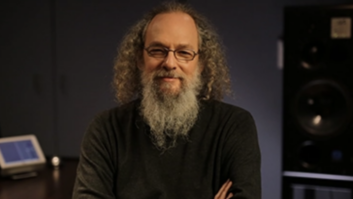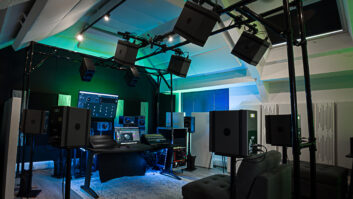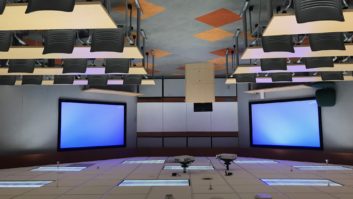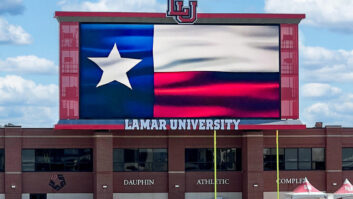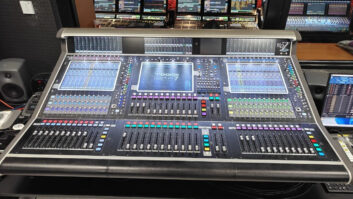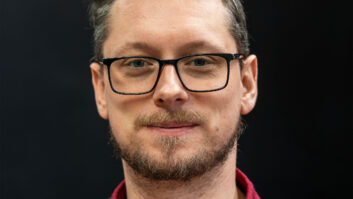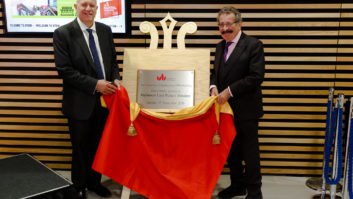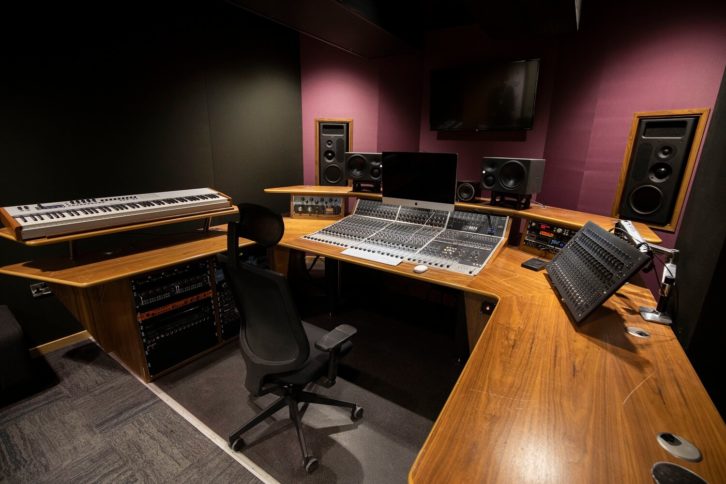
The £55million Adelphi Arts and Media facility at the University of Salford has just seen its first students graduate who have spent their entire degree in the new building. Recording technical demonstrator, Samuel William Jones hails this as “a momentous occasion.” Housing the most up-to-date practice rooms, rehearsal facilities and recording studios the new creative hub also counts some 65 pieces of Audient equipment among its vast arsenal.
“Six of our nine recording studios have Audient ASP8024 Heritage Edition consoles ranging from 24-36 channels depending on the studio, essentially our traditional live/control room combo music studios,” says Jones, adding that these consoles were the first six to come off Audient’s production line. “Our Voice Acting studio has a rack of the ASP880 mic pre amps (we are potentially looking at the new Nero Monitor Controller as an addition to that studio at the moment) and our computer suite is kitted out with the iD4s for monitoring and recording.”
He explains how the smaller audio interfaces fit in. “The iD4s have made a great addition to the Mac suites, the simple interface and combined volume controller mean they have been great with new students perhaps a little unfamiliar with audio interfaces in general, whilst it’s been really useful for anyone wanting to record synth or capture the DI signal of guitar or bass for re-amping in the studios later.”
This batch of iD4s have replaced iD14s, which are now used for a whole range of things including for loan through the equipment store. “They have been really popular with students to take home to record and mix with. We have essentially bundled them with a microphone as a sort of home studio kit,” he continues, citing the example of an assignment for the Advanced Studio and Location Recording module where students are required to record a local gig or find an interesting space to record something specific like a classical ensemble.
“We have kept a few in the studios for location recording when people are after an easy solution and only need 12 channels, so we pair them up with a rack of pre-amps,” he says. “They do get a surprising amount of use on campus as well; lecturers will often use them as an interface in lectures, students will have a laptop in the studios they might be using as an external instrument, or we use them when we need a pop-up listening space for exhibitions.”
Many University of Salford music technology alumni were already Audient stalwarts, having used the classic ASP8024s before the New Adelphi Building was opened in 2016, so the upgrade to the ASP8024 Heritage Edition made perfect sense when they moved.
Jones sings the praises of the desks from a teaching perspective: “They’re excellent for teaching signal flow to students and how to record from a ground-up perspective, without compromising on sound or features. Everything is available immediately without any menu diving or hidden functionality, which is really important when students are trying to get their heads around what each section does and making sure they are normalised properly before the next session.”
Despite the growing intake of students, and perhaps because of the increase in the number of recording studios since Adelphi’s inauguration, competition for places has got steadily tighter over the years. “All of our recording studios are generally booked to capacity as we encourage students to use them all the time. We’re open from 9am – midnight nearly every day during term-time which means that the desks get quite a lot of use.” he says.
Reflecting on the last three years, Jones is delighted in the students’ achievements. “In all honesty it’s been really amazing to listen to all the work our students have been producing, there’s been some really ingenious stuff that hopefully is the result of being able to work in such a flexible space with lots of analogue and digital options. Particularly this year we’ve seen a lot more people engaging with our tape machines (there’s a module option to do an ambitious overdub exclusively on tape) which have been really excellent – using the consoles for their design origins I suppose!”
